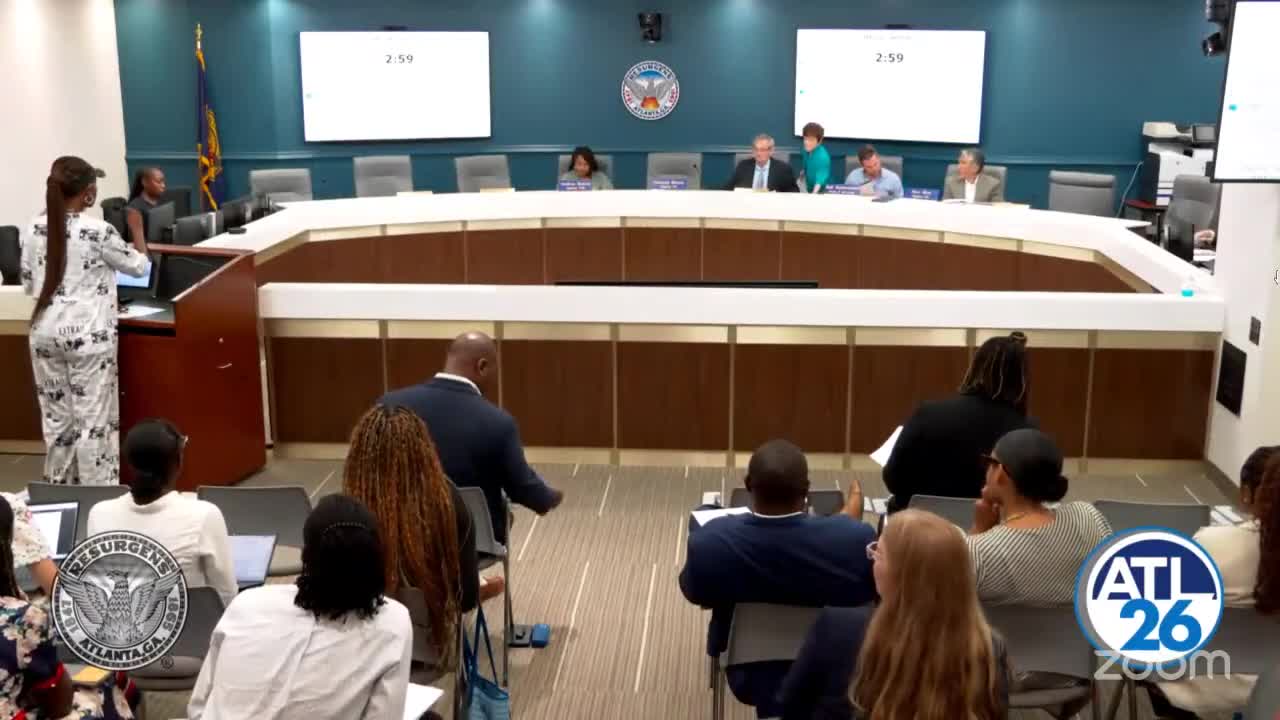Article not found
This article is no longer available. But don't worry—we've gathered other articles that discuss the same topic.
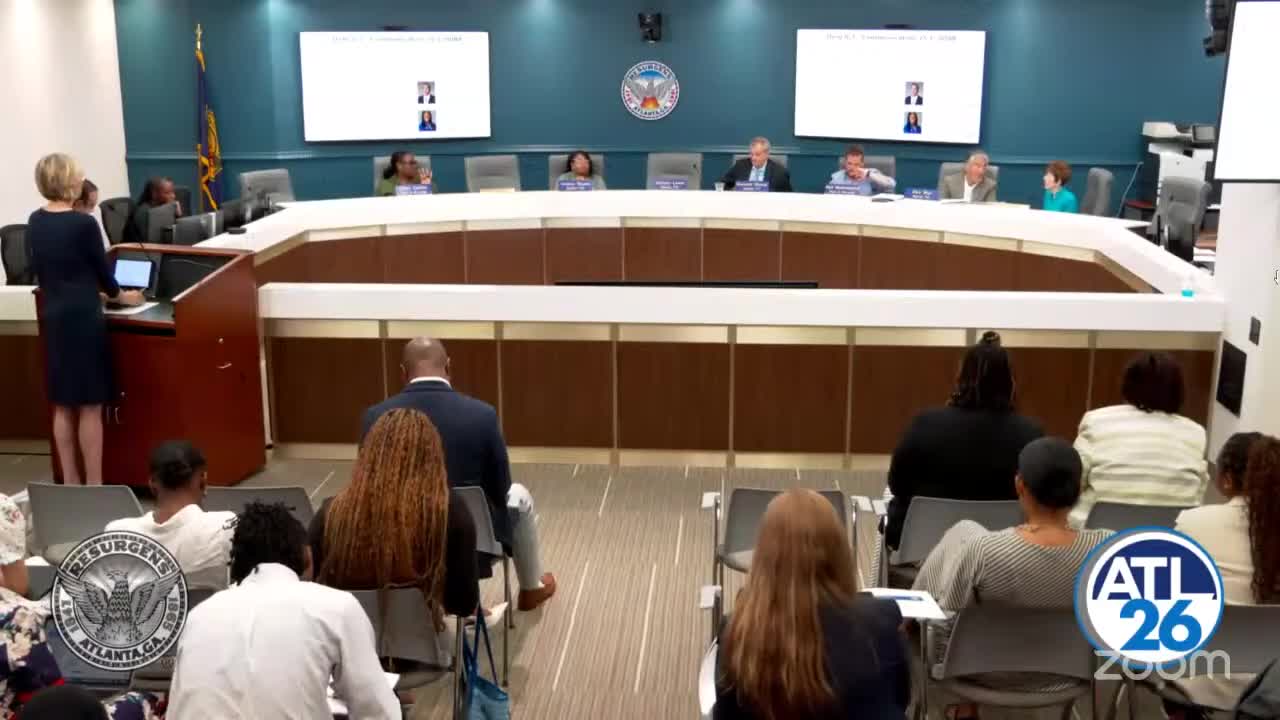
Committee approves GIFA loan application and several Watershed contracts tied to consent‑decree work
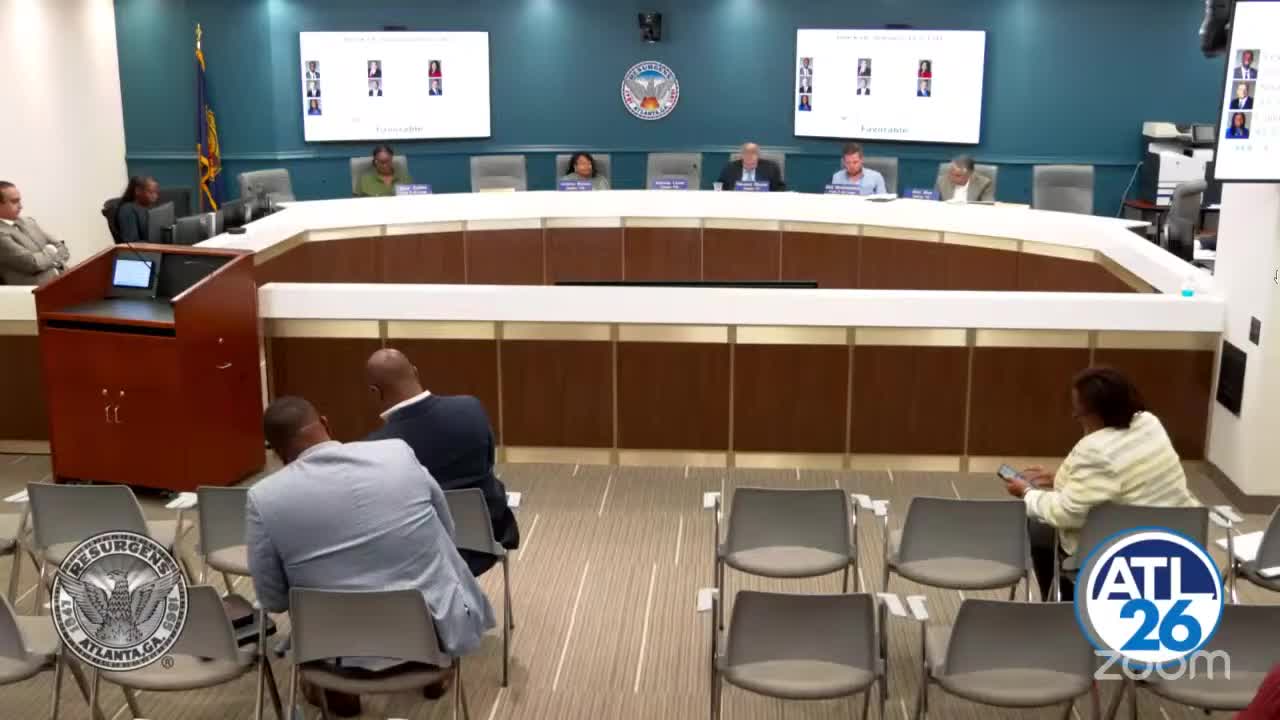
Committee holds Google Fiber franchise request after members press for stronger right‑of‑way and restoration rules
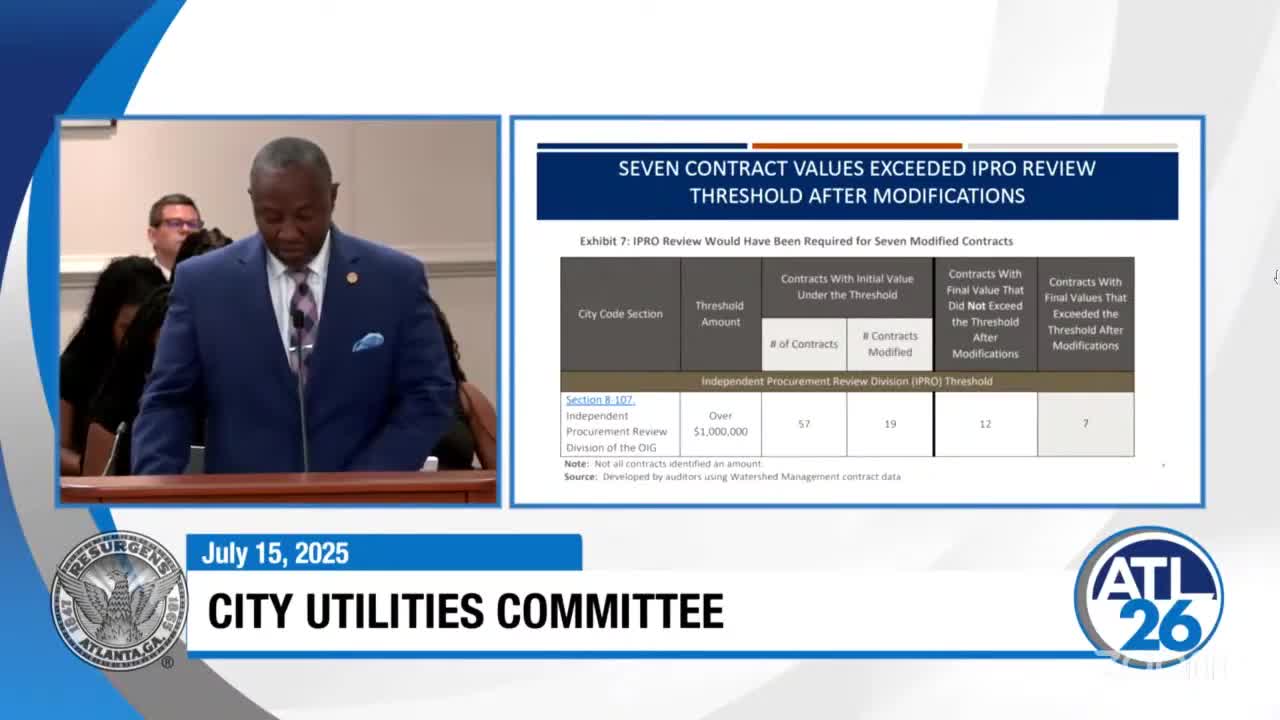
Audit: Atlanta recycles about 23%; Rubicon data errors and multifamily enforcement gaps hamper diversion
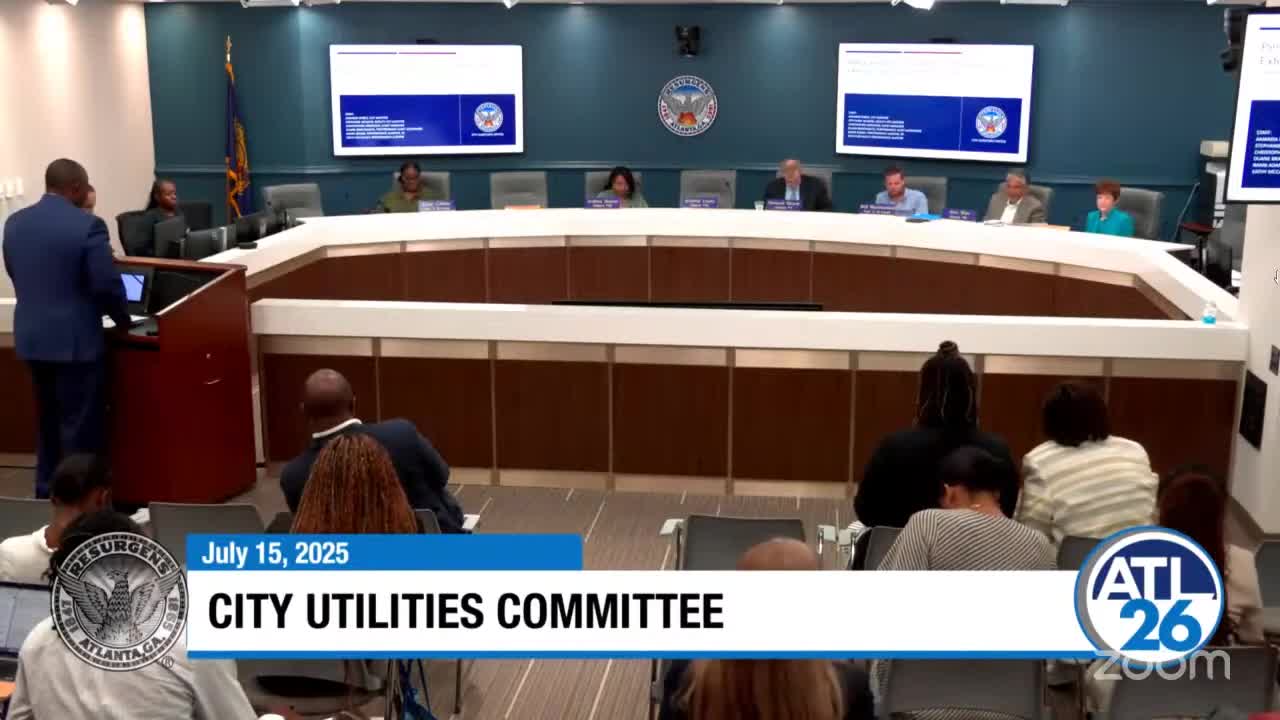
Audit finds frequent post‑award changes to Watershed contracts; auditors recommend tighter controls
